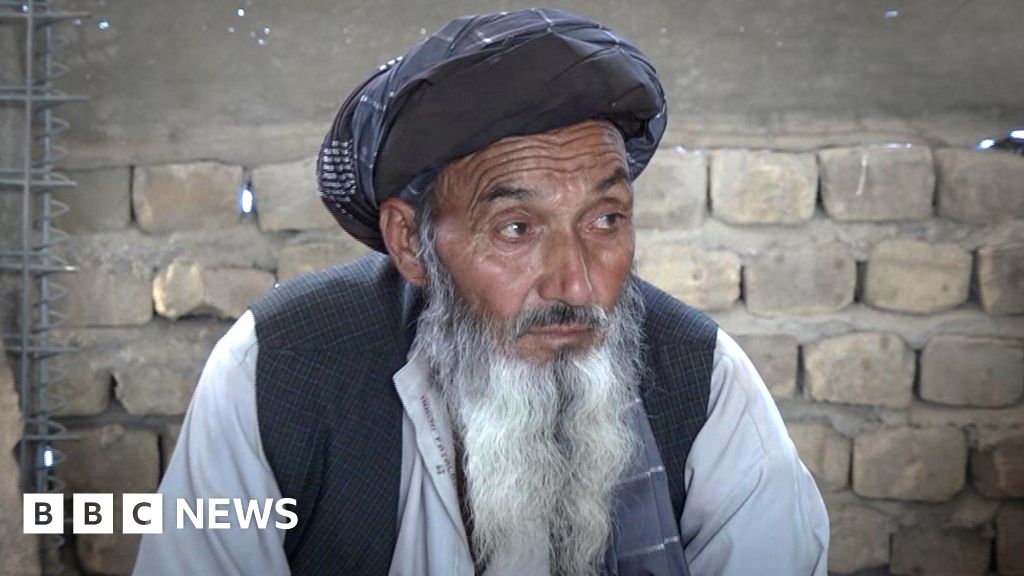Mohammed feels lucky that his family survived, but he says he has lost everything else.
He showed me his fields where his crops had been destroyed.
“This is my only source of income,” he said. “I feel helpless.”
Like 80% of Afghans, he relies on agriculture for his income. Mohammed said he wasn’t sure how they would survive.
He pointed to the ruins of his home in the distance. He was unable to return because the floodwaters were still too high.
“I have nothing now, what should I do? I have a family to support, but I have nothing.”
Even before the floods, the United Nations estimated that some 24 million people – more than half of Afghanistan’s population – would need some form of humanitarian assistance this year.
It’s not just crops that are affected. Mohammed said his neighbor lost two cattle in the floods. This is the man’s only way of making a living.
Noor, who lives with his daughter, said the only possessions he left behind were the clothes he wore. He grew up living in the house that washed away – his father built it 65 years ago.
“I’m very hopeful for the future,” he said. “My son and granddaughter are both teachers and I am proud because they have contributed to the future of our country.”
Both are now dead. “The flood took away everything,” he said.
All photos copyright

